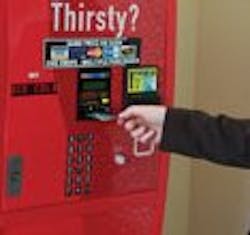Heartland Payment Systems Releases Immediate Impact Of Durbin Amendment
Just days after the implementation of the Durbin Amendment swipe fee reform on Oct. 1, Heartland Payment Systems, one of the nation's largest payments processors, has released the first real-world data about the legislation's actual effects on business owners across the U.S.
The Heartland release noted that quick serve restaurants and small-ticket merchants “feel the pain of MasterCard® and Visa® fee changes.”
While the majority of merchants are realizing significant savings from the debit rate reductions, merchants that process a high volume of small-ticket transactions are actually paying more due to the elimination of MasterCard and Visa's small-ticket interchange rates.
As of October, the card brands are charging the same regulated rates as standard transactions of 21 cents plus one cent plus 0.05 percent of the transaction volume, which translates to increased costs on debit transactions less than $11. In Heartland's portfolio, quick serve restaurants, for example, are now paying an average effective interchange rate of 2.15 percent compared to the 2.08 percent they were charged under the small-ticket provision.
From the Oct. 1 to 3, 2011, Heartland passed along $1,779,568 in debit interchange reductions to its merchants across the U.S.
Restaurant merchants received $671,652 of this reduction. The company estimates its average merchant will save more than $1,000 in the first year alone.
The real effects of the Durbin Amendment have already started to take hold as evidenced in the statistical findings below derived from data collected between Oct. 1 to 3, 2011 across Heartland's portfolio of 250,000 merchant locations. Heartland has found:
- 65 percent of its signature debit sales volume qualified as regulated;
- On average, there is a savings of $0.21 per transaction for regulated (vs. non-regulated);
- The average signature debit non-regulated interchange fee per transaction is $0.44;
- The average signature debit regulated interchange fee per transaction is $0.23;
- On average, there is a savings of 75 basis points for regulated (versus non-regulated) – The average signature debit non-regulated effective rate is 1.55 percent;
- The average signature debit regulated effective rate is 0.80 percent.
For more information on the Durbin Amendment, visit GetYourDurbinDollars.com.
